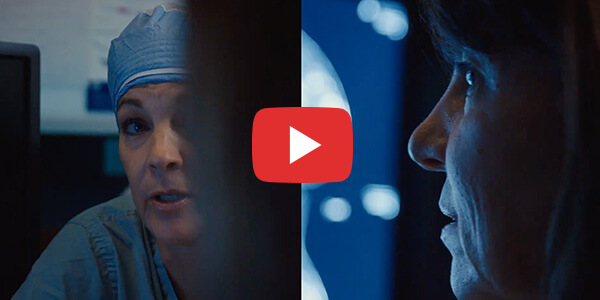Cancer Diagnosis and Treatment at UH Seidman Cancer Center
At University Hospitals Seidman Cancer Center in Cleveland, Ohio, we are leading the way in the diagnosis and treatment of cancer with state-of-the-art technology that allows our expert care teams to detect tumors earlier, target cancer cells more precisely, and perform complex procedures using minimally invasive techniques. Our patients have access to advanced cancer treatment options, ranging from our pioneering stem cell transplant program and immunotherapy to the first and only proton therapy center in northern Ohio. We also emphasize precision medicine that targets treatment to the unique genomic characteristics of a patient’s tumor.
Diagnosing Cancer
The cancer experts at UH Seidman Cancer Center use a variety of tools to detect and diagnose cancer. Bloodwork and other lab tests, imaging technology (such as CT, MRI, PET and ultrasound) and biopsies are all used to diagnose cancer and determine the cancer’s stage (whether it has spread to other areas of the body.)
UH physicians also have access to state-of-the-art technologies for diagnosing cancer. For example, UH was the first hospital in the U.S. to use a PET/MRI scanner in a clinical setting, which uses positron emission tomography (PET) and magnetic resonance imaging (MRI) technology to generate enhanced digital images and accurately pinpoint cancer locations.
Our specialists use less invasive procedures, specialized state-of-the-art technologies, and other advanced techniques such as molecular biology and genomics in diagnosing cancer. Tools such as this lead to a more precise diagnosis, allowing for more targeted therapies to treat cancer.
Cancer Treatment & Approach
Because each cancer diagnosis and patient is unique, UH Seidman Cancer Center uses an individualized approach when determining and developing your treatment plan. Combining standard therapies with new treatments for cancer, our expert team creates a plan that gives the best chance at successfully treating any type of cancer. Cancer treatment options include:
Specialty Services, Programs & Cancer Treatment Centers
Stem Cell/Bone Marrow Transplant Program
The UH Seidman Stem Cell Transplant Program provides excellence in transplant care for blood cancer and benign blood disorders.
Proton Therapy Center
We are the first in Ohio and the region to offer proton therapy to treat both adult and pediatric cancers. Proton therapy is a form of radiation therapy that precisely targets tumors.
Breast Health Services
UH provides complete breast health services for women, from breast cancer prevention and screenings to the latest treatments for breast cancer.
Adult Sickle Cell Disease Clinic
Our Adult Sickle Cell Disease Clinic brings together experts from a wide range of specialties to help patients with sickle cell disease.
Cardio Oncology Program
We provide comprehensive cardiovascular care for cancer patients, including monitoring and treating any heart problem before, during or after cancer therapy.
Lung Cancer Screening Program
UH offers a lung cancer screening program for patients who are at high risk for developing lung cancer.
Cancer Care for Babies, Children, Adolescents and Young Adults
The Angie Fowler Adolescent & Young Adult Cancer Institute offers complete cancer care to serve the unique needs of babies, children, teens and young adults with cancer.
Cancer Treatment Clinical Trials
Access to Clinical Trials for the Latest Treatment Options
As a part of the National Cancer Institute-designated Case Comprehensive Cancer Center through Case Western Reserve University, UH Seidman Cancer Center’s team of physician-scientists and clinical researchers are actively involved in more than 350 clinical research trials that are studying and developing new treatments for cancer.
We’re one of seven cancer centers in the country to have access to a pipeline of new drugs through the National Cancer Institute, offering patients newer and better treatment options. Additionally, UH Seidman Cancer Center has established the Developmental Therapeutics Program, in conjunction with the Case Comprehensive Cancer Center, which promotes disease-specific research for developing new cancer drugs.
We continue to participate in early development of FDA-approved drugs for all disease sites. Approximately 20 percent of our patients participate in clinical trials, compared to the national average of 3 to 4 percent.



